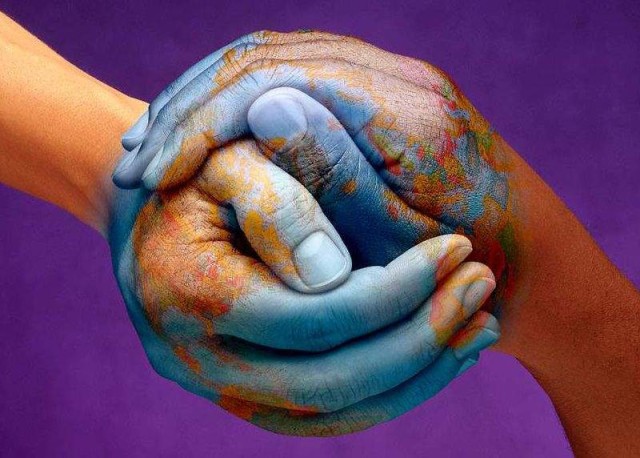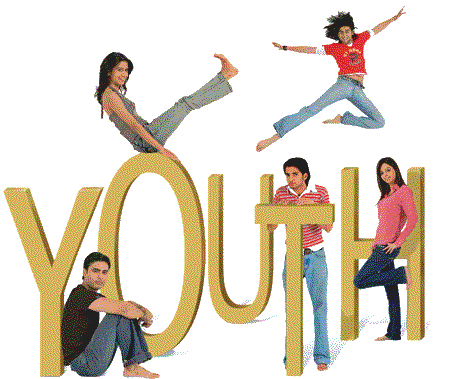As I began penning this article, I was reminded of a recent story that actually first surfaced on the social media. But so strong was its impact [owing to the message it poignantly projected] that it not only caught the attention of our entire nation, but the whole world at large. A simple-albeit-an-inordinately-long title heading from the TIME magazine (21st January, 2016) read: ‘A Monkey Adopted a Stray Puppy and It’s the Most Adorable Thing You’ll See All Day’.

To be completely honest, it WAS indeed the most adorable thing I saw and read…EVER! But it got me thinking…‘What was it about the story that had caught the attention of an entire planet?’ I, of course, knew soon enough, which incidentally formed the basic premise of the present article…a story about human values.
So, what are ‘human values’?
To quote an expert, the psychologist Milton Rokeach (1975) defined human values as “an enduring belief that a specific model of conduct or end-state of existence is personally or socially preferable to an opposite or converse mode of conduct or end-state of existence.” That is, values are statements of the ideal which prescribe positive modes of behaviour that aim to meet positive ends.
To quote simply, however, “human” values are values that make us human. It is that what separates us from the rest of the animal kingdom. It is our innate “humane”-ness that allows us to proclaim our special ‘species(ical)’ superiority over animalistic inferiority, which is why a primate protecting a pooch captured the hearts of millions. Especially, since murky stories of almost-ritualistic ‘animal abuse’ appear every day at the hands of the “superior” human. Then again, to quote Friedrich Nietzsche – ‘Man is the cruelest animal’. [How true, indeed!]
To be perfectly honest, the moral fabric of our society is clearly in tatters. In fact, the world is becoming stranger by the day…for we now live in a world that is increasingly shocked when it is confronted with honesty than it is by deceit. This is why, it is front-page news…when a man in Gujarat chances upon a bag of diamonds but instead of pocketing it…he returns it instead.
Then again, we are grappling with ‘Moral Bankruptcy’ in a world in which materialism trumps morality. We have literally descended into a society that is becoming increasingly willing to trade its soul to the devil in return for those seven wishes. While we use ‘denial’ and ‘rationalisation’ to explain all our bad behaviours, truth is – we need to break this “ungodly” deal with the devil!
If we do not want to further spiral down this path of moral depravity and debauchery, the solution has to come from the youth since we are the future of this country. So, how can we inculcate and teach essential human values so we as a nation can grow and prosper for sustainable development?
Truth be told, scholarly debate on human values and character development has been raging since the days of Aristotle [Nichomacean Ethics] and Socrates [Meno]. Of course, one thing everyone does seem to agree upon is that human values are essentially learned through the socialisation process. In fact, it is through education that young people are prepared for this social inheritance of human values. While for the past several centuries, the duty of preparing well-rounded individuals was a task that was jointly taken up by parents and schools/colleges (and other educational institutions like the Gurukuls, ashrams, etc.), things have changed drastically in the past few decades.
This is owing to a number of reasons, namely:- (a) the rise of nuclear families/rise of individualism, (b) working parents, who do not have time for their children, (c) parents, who despite having the time and inclination are unsure on how to teach value, (d) a shift from a value-based education system to a marks-based education system, etc. and (e) a paradigm-shift from spiritualism to materialism.
This is why the many extracurricular activities in our schools/colleges include activities such as sports, music, arts, etc. But seldom include courses that teach us to be more compassionate, empathetic, open-minded, tolerant, non-judgmental, forgiving, kind, honest, responsible, etc. In a lot of ways, therefore, our schools and colleges (and other institutes of higher learning) are no longer fulfilling the ideal for which they were originally created. And as rightly pointed out by Theodore Roosevelt: ‘To educate a person in the mind but not in morals is to educate a menace to society.’
But is all lost?
Thankfully, the answer is a resounding ’NO’. This is because of something called the ‘Doctrine of Free Will’. If we analyse the writings of renowned English philosopher, John Stuart Mill, he put forth the solution to this ‘moral-socialisation-gap’ dilemma a long time ago. According to Mill, ‘the character of a person is not given at birth. In other words, character is not genetic! It is formed through education. But if it is possible to form someone’s character by means of education, then it is also possible to form one own’s character through self-education.’ In other words, if others are not there to do it for us, we can do it for ourselves.
Hence, if we have the wish to change ourselves, then we can. But why would we want to change ourselves? Or can we be suitably motivated to change ourselves for the better? The answer is – ‘YES’. According to Mill, ‘discontent with oneself and one’s own life, or the admiration for another lifestyle may be reasons why one would want to change.’
Hence, we need positive role models – individuals who imbibe the ideals of these human values. And it doesn’t even matter if that individual happens to be a close cousin of the human species. After all, learning ‘human values’ is no monkey-business (pun – and its inherent satirical value – is most certainly intended)!
































Values and efforts are not precisely installed by just merely asking or forcing the youngsters to behave as per our wish. We are required to prick their conscience. Once we are able to hit their mind, no power is there that can prevent the inhumane re-branding as the human, again! Also, investing in the children when they are in initial stages of life also helps in giving a true tree to the country when they finally grow up!